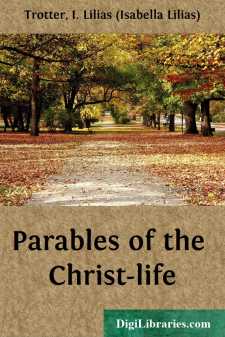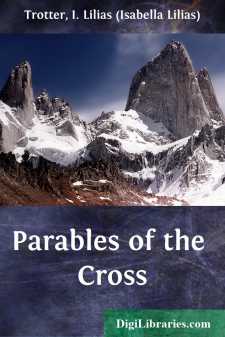Categories
- Antiques & Collectibles 13
- Architecture 36
- Art 48
- Bibles 22
- Biography & Autobiography 815
- Body, Mind & Spirit 144
- Business & Economics 28
- Children's Books 18
- Children's Fiction 14
- Computers 4
- Cooking 94
- Crafts & Hobbies 4
- Drama 346
- Education 58
- Family & Relationships 59
- Fiction 11833
- Games 19
- Gardening 17
- Health & Fitness 34
- History 1378
- House & Home 1
- Humor 147
- Juvenile Fiction 1873
- Juvenile Nonfiction 202
- Language Arts & Disciplines 89
- Law 16
- Literary Collections 686
- Literary Criticism 179
- Mathematics 13
- Medical 41
- Music 40
- Nature 179
- Non-Classifiable 1768
- Performing Arts 7
- Periodicals 1453
- Philosophy 65
- Photography 2
- Poetry 896
- Political Science 203
- Psychology 44
- Reference 154
- Religion 515
- Science 126
- Self-Help 85
- Social Science 82
- Sports & Recreation 34
- Study Aids 3
- Technology & Engineering 59
- Transportation 23
- Travel 463
- True Crime 29
I. Lilias (Isabella Lilias) Trotter
Isabella Lilias Trotter (1853–1928) was a British artist, writer, and missionary known for her dedication to missionary work in Algeria. Though a talented painter, she chose to prioritize her religious calling over an artistic career under the mentorship of John Ruskin. Trotter founded the Algiers Mission Band and worked extensively to share Christian teachings with Muslim communities, particularly women. She also authored several devotional books, including "Parables of the Cross" and "Parables of the Christ-life," which used simple illustrations and nature imagery to convey spiritual truths.
Author's Books:
Sort by:
LIFE--the first glance would hardly find it on this African hillside in the summertime. The hot wind of the desert has passed over it, and the spring beauty of iris and orchid, asphodel and marigold, has vanished. Nothing is to be seen but the mellow golden-brown of the grass, broken by blue-green aloe leaves, and here and there a deep madder head of dried-up fennel. Yet life is reigning, not death,...
more...
There was deep insight in those old words. For man's natural thought of death is that of a dreary ending in decay and dissolution. And from his standpoint he is right: death as the punishment of sin is an ending. But far other is God's thought in the redemption of the world. He takes the very thing that came in with the curse, and makes it the path of glory. Death becomes a beginning instead...
more...



